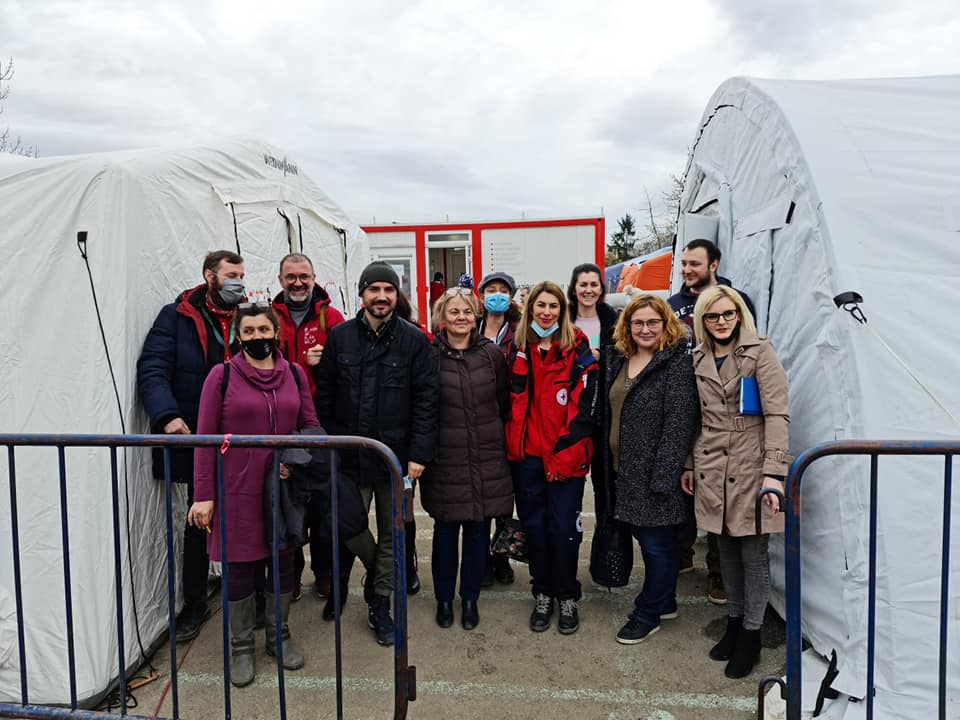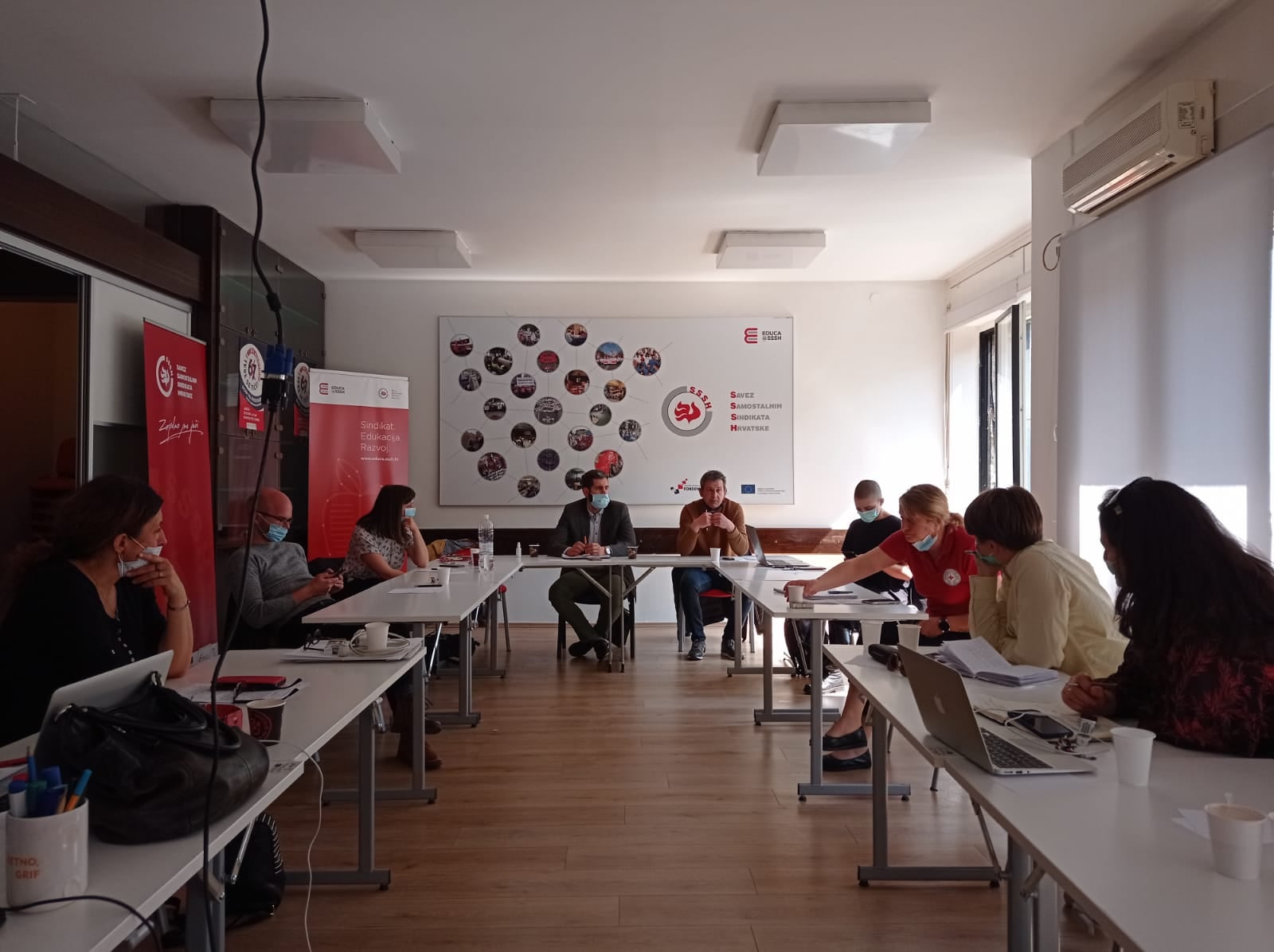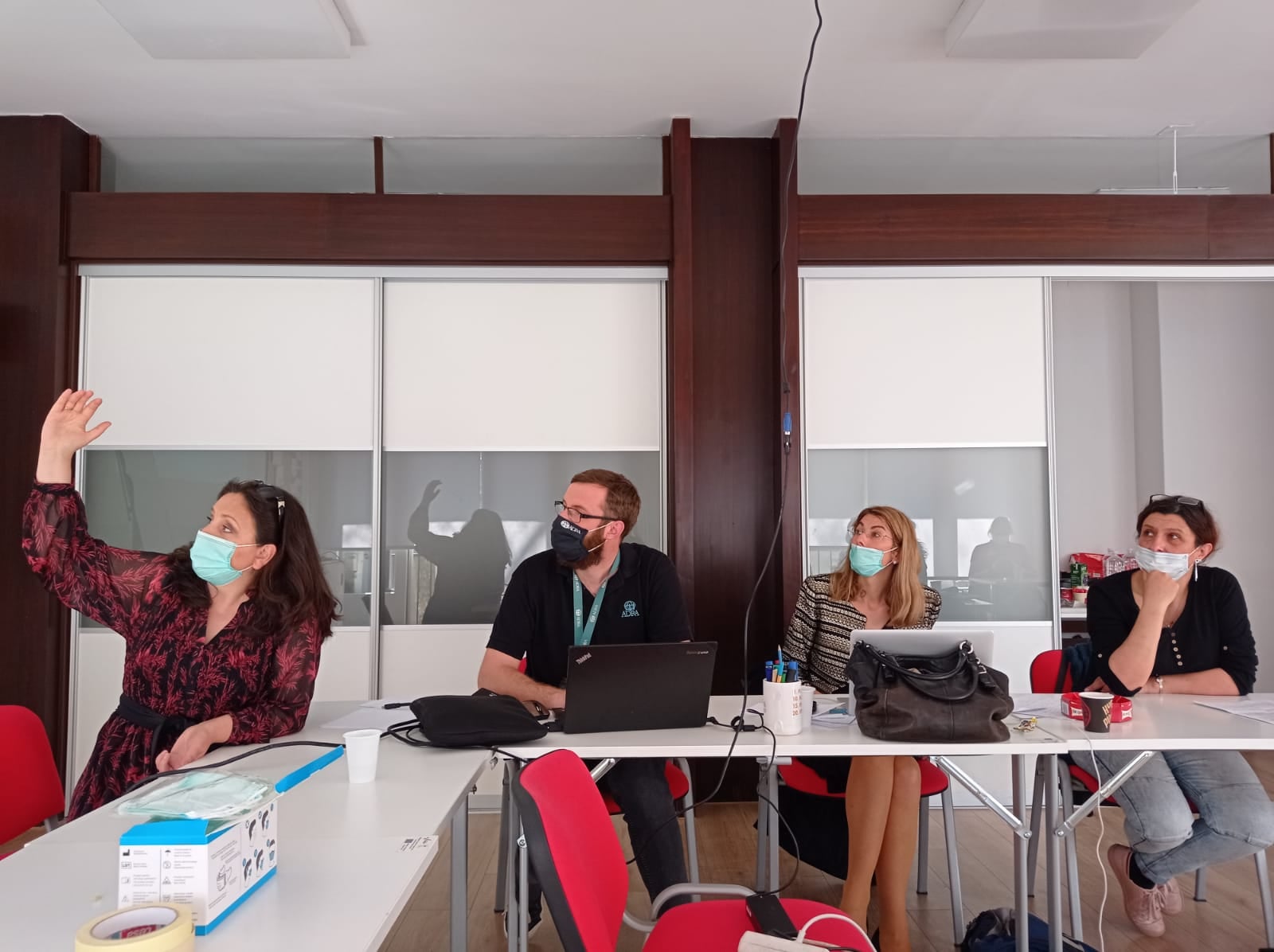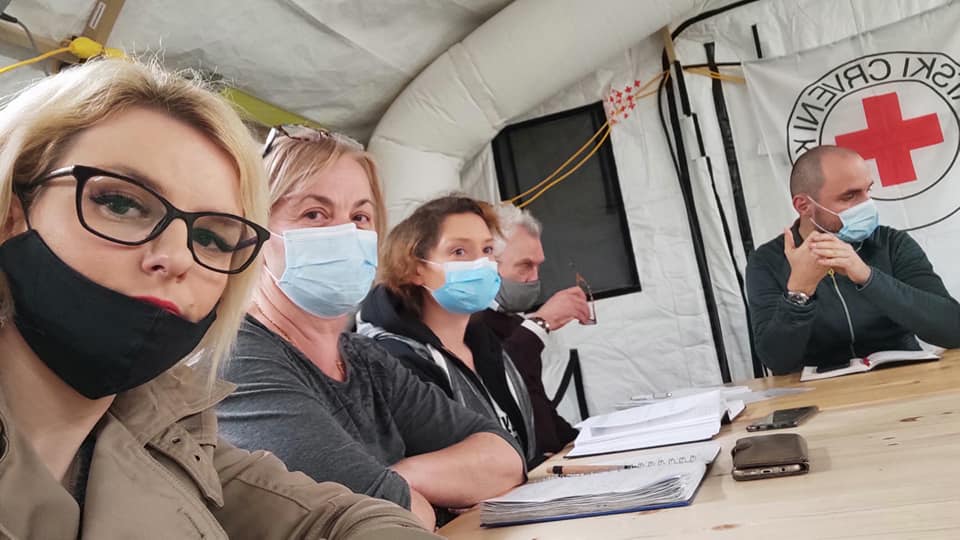
The earthquakes that hit Sisak-moslavina County at the end of last year caused unprecedented damage, material and emotional, to our fellow citizens. At the same time, they discovered the great heart Croatia and people around the world have.
In crisis situations, our first instinct was to act – to help in whatever way we could and knew how. Volunteers from all over arrived in Petrinja and the surrounding areas only a few hours after the earthquake, along with convoys of donations. Food, water, hygiene supplies, everything the unfortunate people needed, were distributed directly, as it arrived.
On the day of the second devastating earthquake, the SOLIDARNA Foundation reactivated Fund 5.5, intended for crisis support to the victims. Aware of the responsibility we have towards our donors, we were on the field the next day to coordinate our activities with other organizations and initiatives that were providing help.
In order to be as effective as possible in responding to the acute needs of the victims, we have used multiple channels and models in the distribution of humanitarian aid and donations from the beginning. Also, in order to make the joint action of all humanitarian actors in the field as purposeful as possible, from the first day the SOLIDARNA Foundation advocated the formation of the Coordination of Humanitarians, which was soon established under the Croatian Red Cross.

In the first days after forming the Coordination, Tamara Jovičić from the Petrinja Association IKS pointed out: “After the first chaotic days, with SOLIDARNA Foundation and other partners, we joined the coordination created at the Croatian Red Cross, precisely because of the experience and skills we have and make available to help this area as soon as possible and as effectively as possible. We consider this extremely special opportunity for the development of all that a civil society of a democratic state can and should do. We place great trust in the Coordination and build common stories that will be good. ”
The previous long-term mutual cooperation of the gathered organizations and initiatives has enabled them to seek information and support from each other with full trust in situations when they face new challenges. This way of action optimized the time, energy and resources of all involved and enabled the complementary provision of various forms of assistance to victims, said Aneta Vladimirov from the Serbian National Council: “We are pleased to cooperate with organizations and initiatives gathered in the Coordination. This way it is possible to avoid so-called “duplication” of aid and to achieve a fairer distribution of support to the people. “

Rationalization of resources is especially necessary in the current phase in which organizations and initiatives are focused on sustainable reconstruction and recovery of Sisak-moslavina County, for which the continuous coordinated exchange of information on the situation and changes taking place in the field is key. Of great help in this exchange is the user database developed by ADRA Croatia for Glina Municipality, which has served as a model of mapping needs for other organizations. ADRA’s humanitarian coordinator Daniel Presečan explains: “At the beginning, we recognized that knowing the needs of people who are specific to them is crucial, so we started working on the information management system from day one. We did a detailed analysis of each person’s needs which allowed us to follow the development of those needs throughout this period. Thanks to that system, and also to the membership in the Coordination, we could direct people to other organizations if they had some needs that we could not respond to. ”

In addition to the ongoing cooperation of humanitarian organizations and initiatives, the Coordination of Humanitarians is in communication with state administration bodies and local and regional government, also with the aim of distributing humanitarian aid as quickly and accurately as possible. The rapid exchange of information and operational cooperation on a network basis has enabled humanitarian organizations and initiatives to quickly verify and meet acute needs to which the public crisis protection system is unable to respond in a timely manner.
The value of coordinated action of humanitarian organizations in the field was also recognized by the Deputy Prime Minister of the Republic of Croatia Boris Milošević: “I am grateful to all organizations that have engaged in the area affected by the earthquake. They have done a tremendous job in terms of helping people, be it food supply, various donations in goods, materials and accommodation. The state has reached out to all people, but of course, nothing can replace the volunteers who wholeheartedly and selflessly provide help and comfort. That is the great value of humanitarians that the state and the government should preserve and support. “

Guided by the principles of cooperation, transparency, complementarity with the resources and actions of other actors, especially the state and local government, the Humanitarian Coordination will continue to operate, either formally or informally, to detect the specific needs of each victim and to respond adequately in a timely manner.